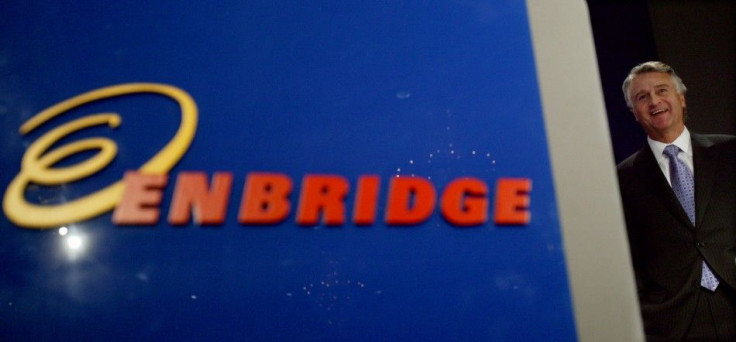Canada energy regulator lax on pipelines: watchdog

Canada's energy regulator has failed to make adequate checks to ensure pipeline operators fix safety problems uncovered at their facilities and keep emergency procedures up to date, the country's Commissioner of the Environment and Sustainable Development said on Tuesday.
In a report to Parliament that raises serious questions about the safety of moving dangerous goods through pipelines and along highways, Commissioner Scott Vaughan also said the federal environment ministry has been lax in enforcing regulations and slow to deal with shortcomings in training of officers.
Vaughan released the report as the National Energy Board and environmental regulators prepare to conduct hearings into Enbridge Inc's C$5.5 billion ($5.3 billion) Northern Gateway Pipeline to the Pacific Coast from the Alberta oil sands. The project is opposed by environmentalists and many aboriginal groups, partly due to fears of pipeline ruptures and oil spills along the route and in coastal waters.
The NEB regulates 71,000 km (44,000 miles) of oil and gas pipelines in Canada, more than half of them less than 30 years old, but nearly a third built between 30 and 50 years ago. More than 12 percent are more than half a century old.
The commissioner singled out as deficient the board's compliance verification, or making sure that regulated pipelines and other facilities are being fixed once problems are identified.
He noted that 29 of a sample of 45 compliance activities had identified problems with systems and processes aimed at ensuring safety, pipeline integrity and environmental protection. In 93 percent of those, Vaughan found no evidence that the board had followed up to make sure the concerns had been addressed.
As a consequence, we have concluded that the board has not exercised a key element of regulatory monitoring: ensuring that identified weaknesses have been corrected by the regulated companies, he wrote.
In addition, the report said another NEB responsibility, making sure companies' procedure manuals for emergencies such as oil spills and gas leaks are up to date, is also lacking.
It pointed out that just three of 30 manuals studied contained evidence that deficiencies had been communicated to the companies and only one showed that the regulator had checked to make sure that problems had been corrected.
Vaughan also criticized insufficient enforcement of environmental laws by the federal environment ministry and what he referred to as significant shortcomings in the training of environment officers to deal with offences.
We concluded that the enforcement program was not well managed to adequately enforce compliance with the Canadian Environmental Protection Act ... and ensure that threats to Canadians and their environment from pollution are minimized, he wrote.
© Copyright Thomson Reuters 2024. All rights reserved.











